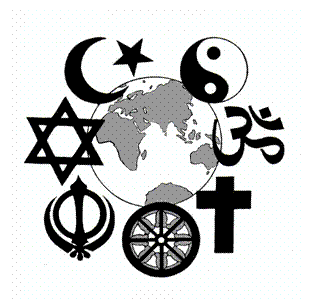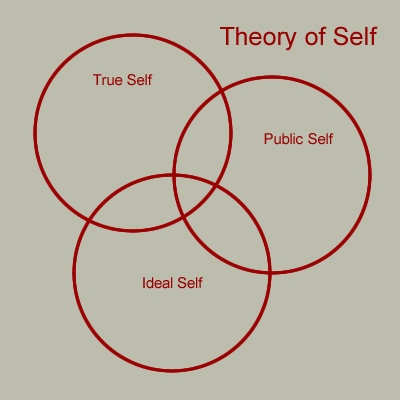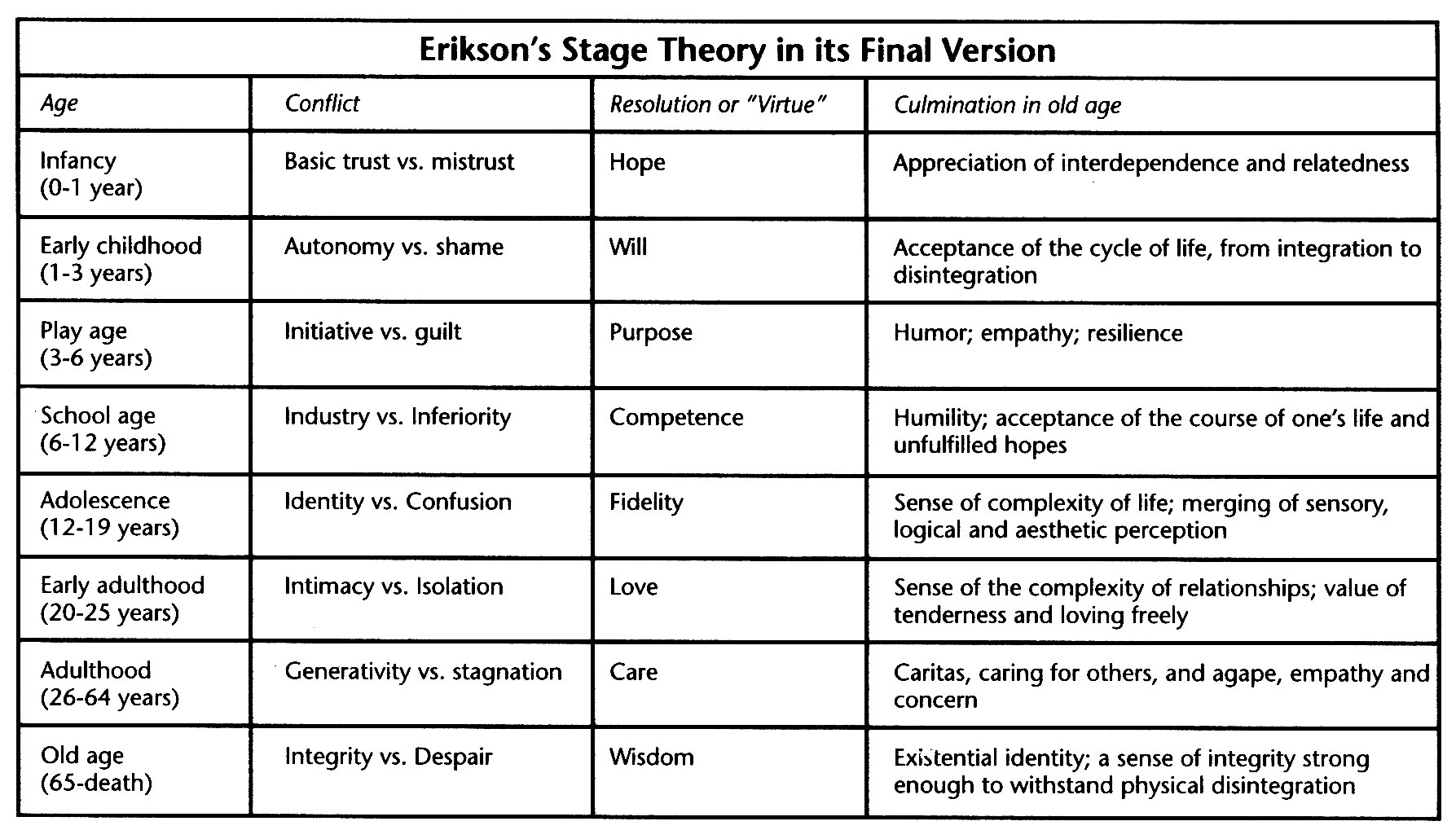Lesson 15: Spirituality, Religion, Integrity and Postive Aging
Spirituality, Religion, and Old Age

Many faiths and religions exist in the world...the contrast between Religion and Spirituality is central to our understanding of their role in old age.
Learning Outcomes
Upon completion of this lesson's material, students will be able to:
- Identify the role that spirtuality and religion plays in mental health work
- Identify life choices that lead to increased chance of integrity in late life
- MHRT Outcome: Knowledgeable about changing treatment needs for adult stages of transition.
Teaching
Reading
Read Chapter 12 - Postive Aging: A Reprise in Vaillant
"Hope" and "Love" are central to lifespan development...but what about "Faith"? Does "Faith" increase at the close of life?
It seems that early in life we need the certainty of a "Higher Power" to help us tie the knots of our identity together. As we age, however, we also seem to become more tolerant to ambiguity and uncertainty. According to the study by Vaillant..."Faith" was not necessarily associated with successful aging...not nearly as much as "Love" and "Hope".
Vaillant draws a hard line between "Spirituality" and "Religion" and by his own admission he sees them as more different than they may really be. It is clear that he favors "Spirituality" as well...most of what he has to say about religion is pretty negative.
Religion, he says, plays a role in our early life in forming the foundation of our identity...as we age, we begin to be able to hear the other stories of other people in other religions and see the truth in those metaphors...to see that the mystery of our existence is multifaceted and God cannot seem to be bound by one tradition or another.
However, from an individual point of view...tradition may be a central aspect of identity through the lifespan. While we develop our spiritual selves by focusing on the universal values that all religions share, we might begin to reassess the traditions and dogma of our "old religion" and see it's symbolism...after all, that is where it originated from!
Editorial My own personal journey has been much like this. I was raised in the Catholic Church. It was a very positive experience for me, though I'm certain that others have not been so lucky. My home town pretty much had one church my entire childhood and we were involved in it and it was involved with us. Leaving the town I adventured into other faiths...some very far from my origins. Yet, I always thought fondly of the "Mass" and the "Eucharist" and the gold and beautiful buildings...it seemed solid to me, solid like the kind of God I wanted to know...reliable and able to withstand the forces of the world bound to destroy me. At this point in my life I find myself drawn back to these Catholic traditions. I know the faults and certainly the history of the Catholic Church...but I've come to know and feel it's solid ground again...it's stead pace in a world caught up in rapid change and individualism. More than anything, the Catholic Church traditions remain very "Eastern". The Protestant churches of today (most of the Christian churches you may hear of arise from the Protestant Reformation) have a highly "individual and personal relationship with God" principle...with personal salvation as a primary aim. While I might agree that this is very important it drowns the light of our command to serve others...do first love and then do unto others as we would have them do unto us...the focus on individual salvation can sometimes digress into a rather self-centered mess! I'm aging though...I have a very broad perspective on different faiths and I do not believe that God can be enclosed in any box of our making. I guess I'll find out. ~ Mark Kavanaugh |
It is telling in Vaillant that there is a relationship between religion and depression...at the same time, religion also serves to provide comfort to the lonely. The reading tells and interesting tale of how one person stopped going to church when they had their 4th child and started again 30 years later...seemingly in line with the need for additional social supports. Perhaps THAT is the value of religion, if it does not serve the spiritual purposes?
Lastly, on P. 273 begins the story of Billy Graham...his was a voice heard a lot in my early life...the sound of his sermons filled the house on Sundays (somewhere inbetween the pork roast dinner and baseball)...this a great story of a very strong spiritual life.
Integrity

Actions you may be doing now that align your values lead to integrity now and in late life.
Theory of Self

As we age our "true", "public", and "ideal" sense of SELF become more and more aligned.
One form of "integrity" is when each of these "selves" is integrated into a single identity. This comes about as we modify our public and ideal self to more closely match our true self (which we have been working on all along to match the other two)
Integrity vs. Despair
I have always been a very big fan of Erikson's theory of human development.
In Erikson's theory he posits that each stage is a dicotomy...something vs. somthing else...we all know the stages: Trust vs Mistrust, etc.
To know Integrity is to know its oppostive, Despair. I believe that Integrity is to have wrapped together the strands of your life into a tapestry that gives your entire life a "picture" or "meaning" and a deep acknowledgement that it really could not have been any other way and still have yielded the same picture. As Vaillant says, you might not have got what you wanted , but Integrity is the next best thing!
To be in Despair is to lack this picture...to fill your mind with regrets of what threads COULD have been sewn into the fabric of your life.
How we live our lives today impacts how we will approach this stage in our lives...in essence, Integrity is the "bed" that we made and we will have to sleep in it.
I liked this online document which gives you some suggestions on how to Develop Personal Integrity.
Positive Aging

So...how do we sum up all of what we have learned about successful aging? I like what Vaillant writes about in the beginning of Chapter 12 when he refers to old age AA watchwords:
- Let go and let God
- First things first
- Keep it simple
- Carpe diem
- Use the telephone
We will all make the journey into old age (if death does not intervene). Will we be able to have the integrity to hold on to these "watchwords"?
As Mental Health workers you will also be in the role, regardless of the age of your clients, in helping them through the transitions of their lives. One of the great aspects of working in this field is to witness people in transition not only from hospitals to supported housing to independent living, but through the normal age-related transitions of life...sometime a "redo" of the stages that were so impacted by mental illness.
Consider that a person becoming an adult after a journey with mental illness may emerge at Erikson's first stage, Trust vs. Mistrust all over again...then as the person progresses they may encounter each additional step.
Assessment
Lesson 15 Discussion (for online class only)
When working with older adults we are bound to confront the issues of religion and spirituality. If we consider that at each stage in our development we look to, and anticipate, the next stage. In later life the next stage is death, and for some, a belief in a life after death. Consider the older people in your own life and contrast their views on death and "what happens after" to your own. In what ways will this contrast influence your work as a mental health worker?
Lessson 15 Quiz
- Identify one or two lifestyle choices that you have made that you feel will increase the likelihood of you having integrity and positive aging for you when you get older.